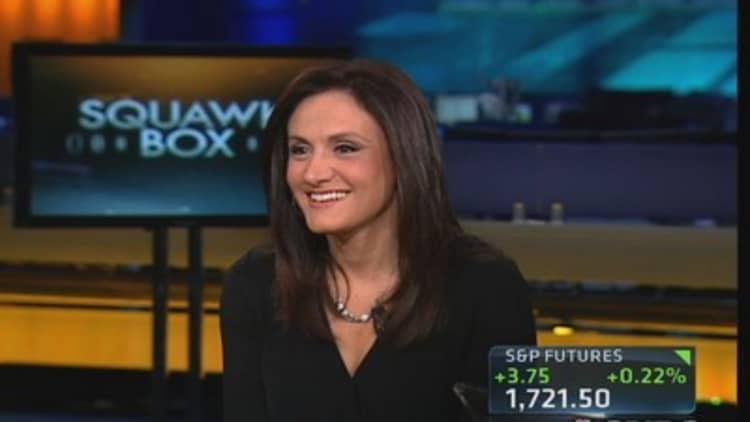When investors thought that the Federal Reserve was going to stem the flow of easy money into the U.S. economy, it was emerging markets that sold off the most. Now that the "taper" is off, it's emerging markets that are on a tear.
When U.S. interest rates rise, they provide more competition against other assets with higher yields. But now that the Fed may be keeping pressure on long-term rates for longer than expected, that competition may disappear.
Markets and currencies in the Western Hemisphere moved in tandem with the U.S. markets yesterday—which is to say, a lot higher: the Brazilian Bovespa shot up 2.64 percent, and the Mexican Bolsa tacked on 1.86 percent.
Brazil's currency also rallied sharply, giving some relief to that country's Central Bank which has been intervening to defend the currency.
(Read more: Some emerging market stocks seen as 'dirt cheap')
Overnight markets in Southeast Asia rallied too. Indonesia climbed more than 4.5 percent. India & Thailand, more than 3 percent. The Indian Rupee and the Turkish Lira both hit one-month highs as well.
'We have been looking to get long EM currencies'

Jens Nordvig of Nomura Securities told clients in a note late on Wednesday that emerging market currencies will likely move higher from here.
"We have been looking to get long EM currencies for some weeks now, and while we have gapped today, we think EM FX will continue to gain in coming weeks," Nordvig said. The "highly likely" appointment of Janet Yellen as Fed chair, he said, "may give a further impetus for the trade."
(Read more: Sell emerging markets, but do it wisely: Roubini strategist)
Nomura has "a long EM basket" consisting of the Mexican peso, the Brazilian real, the Polish zloty, Malaysia's ringgit, and the Philippines' peso, all funded in U.S. dollars.
Even before Fed Chairman Ben Bernanke's announcement Wednesday, research firm Ashmore said it believed that the consensus on U.S. monetary poly was wrong. In a note to clients this month, the firm said, "We think it is quite likely that Emerging Markets will be the strongest performing asset class in the world over the next twelve months."
U.S. interest rates rose sharply earlier this summer, when it looked as if the Fed was going to cut back on quantitative easing. Speculative money departed dramatically from markets such as India, Brazil, and Turkey.
By Michelle Caruso-Cabrera. Follow her on Twitter @MCaruso_Cabrera.


